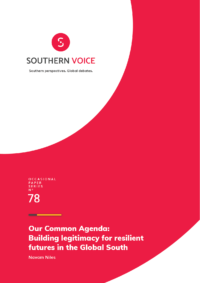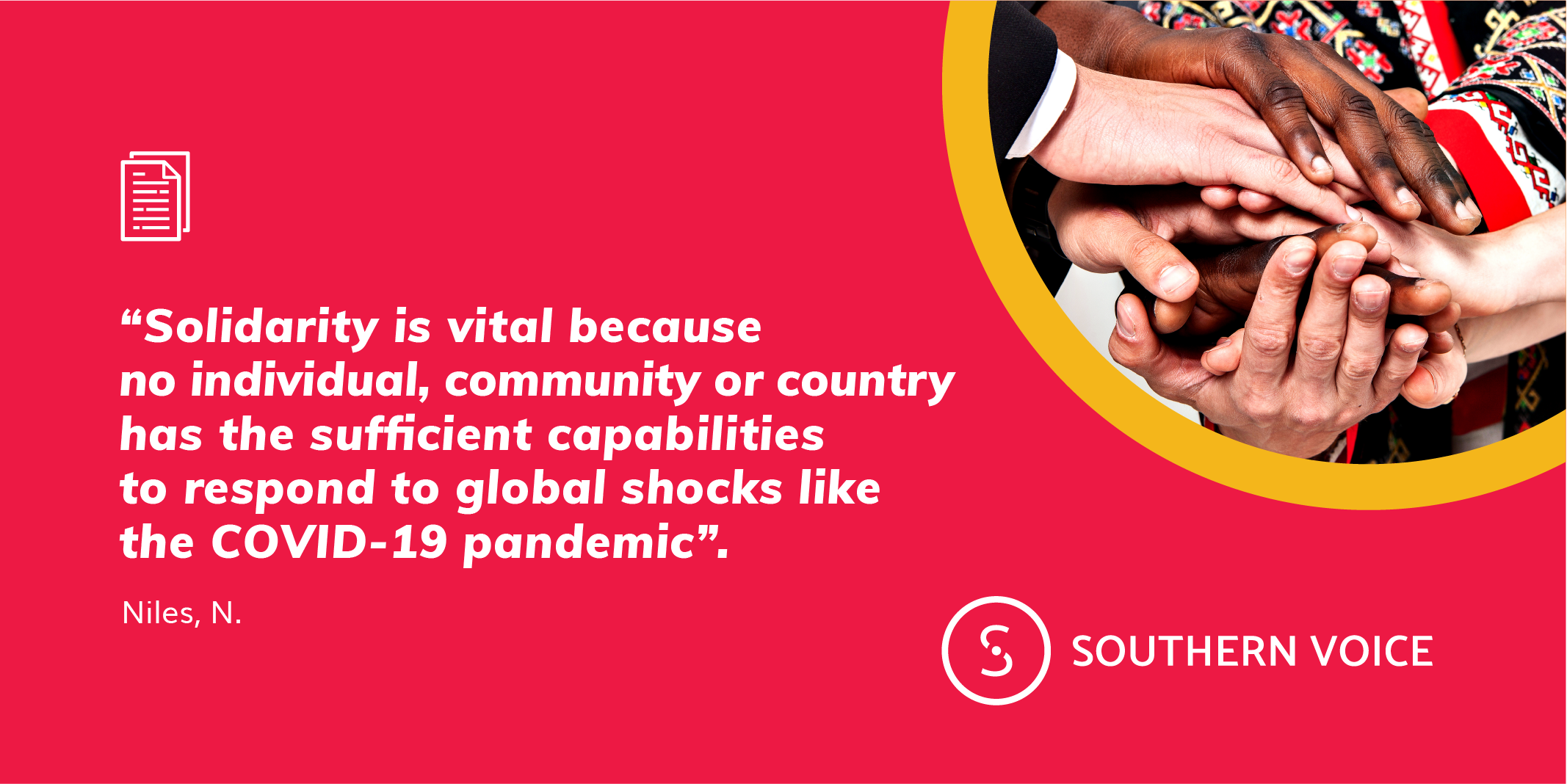South-South Global Thinkers is a global coalition of think tank networks that facilitates the sharing of knowledge, expertise, and perspectives…
 In his call for global solidarity within societies and in the multilateral system, the Secretary-General of the United Nations acknowledged the reality of resilience in the world: no single individual, household, community, or country can hope to adequately respond to global shocks like the COVID-19 pandemic; conversely, the multilateral system cannot support resilience unless its constituent units–especially states–are able to contribute to the provision of global public goods and the protection of the global commons. To achieve solidarity, and thereby resilience, the Secretary-General has proposed a renewed social contract within societies and a new global deal for the multilateral system. Fundamentally, both these proposals seek to strengthen the legitimacy of states and the various institutions of the multilateral system. The need for legitimacy–through inputs such as elections and outputs such as the provision of public goods–is critical both within societies and within the multilateral system. The absence of legitimacy makes it difficult for governments and international organisations to prepare for global shocks or cope with their consequences. Moreover, both types of legitimacy reinforce each other; trying to substitute one with the other is not a sustainable option. This study presents various practical recommendations, extracted from the collective research experience of Southern Voice think tanks, which could enhance both input and output legitimacy, and thereby contribute to the renewed social contract and the new global deal.
In his call for global solidarity within societies and in the multilateral system, the Secretary-General of the United Nations acknowledged the reality of resilience in the world: no single individual, household, community, or country can hope to adequately respond to global shocks like the COVID-19 pandemic; conversely, the multilateral system cannot support resilience unless its constituent units–especially states–are able to contribute to the provision of global public goods and the protection of the global commons. To achieve solidarity, and thereby resilience, the Secretary-General has proposed a renewed social contract within societies and a new global deal for the multilateral system. Fundamentally, both these proposals seek to strengthen the legitimacy of states and the various institutions of the multilateral system. The need for legitimacy–through inputs such as elections and outputs such as the provision of public goods–is critical both within societies and within the multilateral system. The absence of legitimacy makes it difficult for governments and international organisations to prepare for global shocks or cope with their consequences. Moreover, both types of legitimacy reinforce each other; trying to substitute one with the other is not a sustainable option. This study presents various practical recommendations, extracted from the collective research experience of Southern Voice think tanks, which could enhance both input and output legitimacy, and thereby contribute to the renewed social contract and the new global deal.


